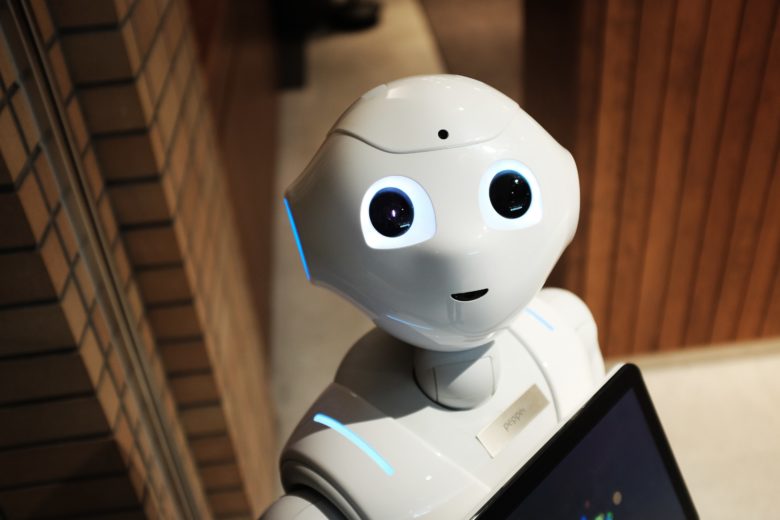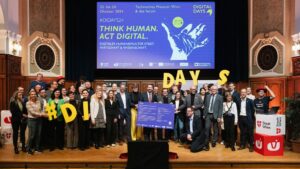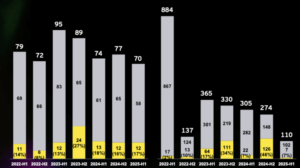AI: How artificial intelligence should become more sustainable

Currently, there is hardly any industry that can ignore the term Artificial Intelligence (AI). What is meant here is the research of “intelligent” problem-solving behavior as well as the creation of “intelligent” computer systems. Artificial intelligence deals with methods by which a computer should be able to solve tasks that would require intelligent action from humans. That is the definition of the university professor Richard Lackes from the Technical University of Dortmund.
Level of industrial automation in Bulgaria: looking behind the numbers
It is precisely this development of “intelligent computer systems” that is proceeding extremely quickly at the moment. And it is promoted at this speed. The European Parliament describes AI as an “essential driver for the digital transformation” of society. Therefore, AI is also an important priority for the EU. The EU distinguishes these in two different types: software, which includes virtual assistants, image analysis software, search engines, speech and face recognition systems, and “embedded” AI, i.e. robots, autonomous cars, drones, applications of the “Internet of Things”.
Racist and Sexist Artificial Intelligence
People in industrialized countries encounter these very different applications almost every day. These appear, for example, in the form of search engines, online marketing, online shopping, or algorithms on social media platforms. The applications are also becoming more and more present in the health sector, in traffic, or in public administration. This has already resulted in undesirable side effects in the past.
Some applications have proven to be racist and sexist in various cases. However, as is so often the case, the faults are not to be found in the machines themselves, but in those who designed them. Or, in the case of Artificial Intelligence, to put it better: have trained. A particularly public case: In the USA, software was used to assist judges in assessing the risk of re-offending in inmates who were released early. The journalists’ network Propublica found that the risk of recidivism was rated higher among black-skinned inmates than among fair-skinned inmates. The trigger for this could be determined in the previous training of AI and fundamental problems in the USA. Black people are more likely to be arrested in the United States. As a result, they were disproportionately represented in the data sets with which the software was trained.
Looking for sustainability in AI
This case and at the same time the increasing number of AI applications make it clear that it is also necessary for this area to monitor and check the effects of these more and more. A research group has now asked itself a very special question: How sustainable are AI applications? The researchers tried to shed light on the three dimensions of sustainability: the social, ecological, and economic effects of AI.
The research team from AlgorithmWatch, the Institute for Ecological Economic Research (IÖW), and the Distributed Artificial Intelligence Laboratory of the Technical University of Berlin have now developed a set of criteria and indicators for sustainable AI to answer this question. They refer to over 50 indicators that are intended to make the social, ecological, and economic sustainability of systems with artificial intelligence verifiable and comparable. For this purpose, the researchers analyzed the sustainability effects along the life cycle of the AI, both from the data model and system design, through the development and use of the model, to the disposal of the hardware, according to the latest information.
The criteria are very different. Some examples are indicators such as “transparency”, “self-determination”, “inclusive design” and “cultural sensitivity” for assessing the social impact, “resource consumption” and “greenhouse gas emissions” for the ecological impact, and “distributional effects in target markets” for assessing the economic one Relevance.
“At the moment, under the catchphrase ‘AI for Earth’ or ‘AI for Good’, there is a lot of talk about how artificial intelligence can be used to contribute to sustainable development,” says sociologist and study author Friederike Rohde. “The sustainability effects of AI Systems themselves, however, are not considered systematically. This is highly relevant in order to create awareness of sustainability risks and to minimize them.”
How Robots And Drones Around The World Are Helping Humans Deal With The Coronacrisis
UNESCO issues recommendation for ethical AI
With their study, the researchers are working on a topic that is more topical than ever, not only in a scientific context but also in a political one. A few weeks ago, on November 23, 2021, the 193 member states of UNESCO adopted the recommendation on the Ethics of Artificial Intelligence (AI), the first globally negotiated text of international law in this area. This was preceded by two years of negotiations. According to UNESCO, this global “frame of reference for the ethical use of AI” includes “ethical guard rails” which are translated into “political design tasks”. This is intended to protect and explicitly promote human and fundamental rights when using AI applications.
In addition to specific political recommendations for action, the UNESCO also recommends the use of an ethical impact assessment for AI systems, with which the advantages and risks of certain AI systems for the protection of human rights and fundamental freedoms over their entire life cycle are to be recorded and assessed. In addition, diversity in the technology sector is to be supported, and stereotyping in the results of AI systems and data by member states is to be disclosed and combated. In the area of ecological sustainability, UNESCO “particularly” recommends the sustainable and resource-saving use of AI systems.
The 193 member states are now required to use and include this UNESCO AI ethics recommendation for the development of national AI measures. In what form this will actually be applied by the individual states remains to be seen. In the ethical area, in particular, there are significantly different views on the use of AI systems at the international level. However, since the future can no longer be imagined without these, such considerations and specifications are elementary in order to weave artificial intelligence into social life in a sustainable manner. And in a form for which they were actually designed: To carry out intelligent actions. Not to encourage contrary behavior.






























